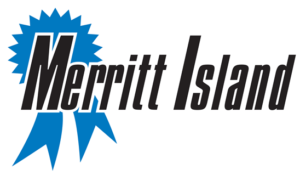How Can You Tell When to Replace Your Heat Pump
Effective heat pumps are necessary for efficient cooling of home and commercial spaces in Melbourne, FL. However, some systems may develop problems that require a replacement, such as short cycling of the unit or strange smells. The following are signs that you may need to replace your heat pump.
Abnormal Noises from the System
During regular operation, a heat pump should make only minimal noise when starting and stopping. The noise occurs due to normal resistance and friction on the moving parts. Noises such as clicking, screeching or grinding are a warning sign of problems with your heat pump.
The effect of wear and tear and loose components in the heat pump will often be the major cause of the unusual noises. Seek technical assistance from a qualified service technician to take a look at the system for repairs or replacement of the heat pump.
Frequent Repairs
Regular maintenance will improve your heat pump’s performance. When there is an increase in the frequency of repairs on your heat pump, it may signify a gradual shutdown. The normal servicing and maintenance duration of your unit should be once every year.
The financial implication of the frequent repairs may prove to be more than the heat pump replacement cost. The inconvenience with these frequent repairs and breakdowns can be disorienting and greatly affect the efficiency of your system.
High Energy Bills
High energy bills are a clear indication that your system may be malfunctioning. When the heat pump is working efficiently, it doesn’t consume a lot of energy. But in cases where the unit has to overwork to give the desired benefit, it needs a replacement.
When your unit has a low cooling capacity during the fall, it strains the heat pump into extra work to ensure it offers a cool environment. Whenever you experience a surge in the bills, enlist the services of a service technician to diagnose the system and replace it if necessary.
Old Heat Pump
Heat pumps are effective during their service life when the components are at their prime and optimal state. These components are known to deteriorate as the years go by and are prone to start experiencing problems.
Expert recommendation on the replacement of the heat pump ranges between 10 to 15 years. For effective performance, call a service technician to replace the unit even if it’s still operational after the optimal years.
Reduced Airflow in the Unit
When the heat pump starts producing less air when cooling, it may be experiencing a problem with the compressor. If after checking the filters there’s no sign of a blockage, you may need to consider replacing the old pump.
Inconsistent Cold Air
When cooling is not uniform throughout the home, it may signify a heat pump that is not functioning properly. Relative humidity and air temperatures that are inconsistent with the settings is a sign that the system is deteriorating.
A heat pump producing warm air instead of cool air signifies low levels of refrigerants. Inspect the valves and filters for any obstruction that may be present. This problem is most significant of a heat pump that’s slowly failing, and you should consider a replacement.
Leaking Unit and Production of Excess Moisture
The design of the pump allows it to operate and stay dry at all times. When the heat pump starts experiencing leakage and increased condensation, you may need to replace it. For the sake of your safety, ask a technician to check out the source of the leak since electrical components are dangerous in the presence of water.
The leakage of the heat pump’s refrigerant needs professional handling due to the substance’s risky nature. The replacement of the heat pump is dependent on the advice of the service technician.
The best way to deal with a malfunctioning heat pump is to replace it. This will ultimately reduce your losses in cash and inconvenience. Call Merritt Island Air & Heat for professional AC repair, installation and maintenance services.
Image provided by iStock
